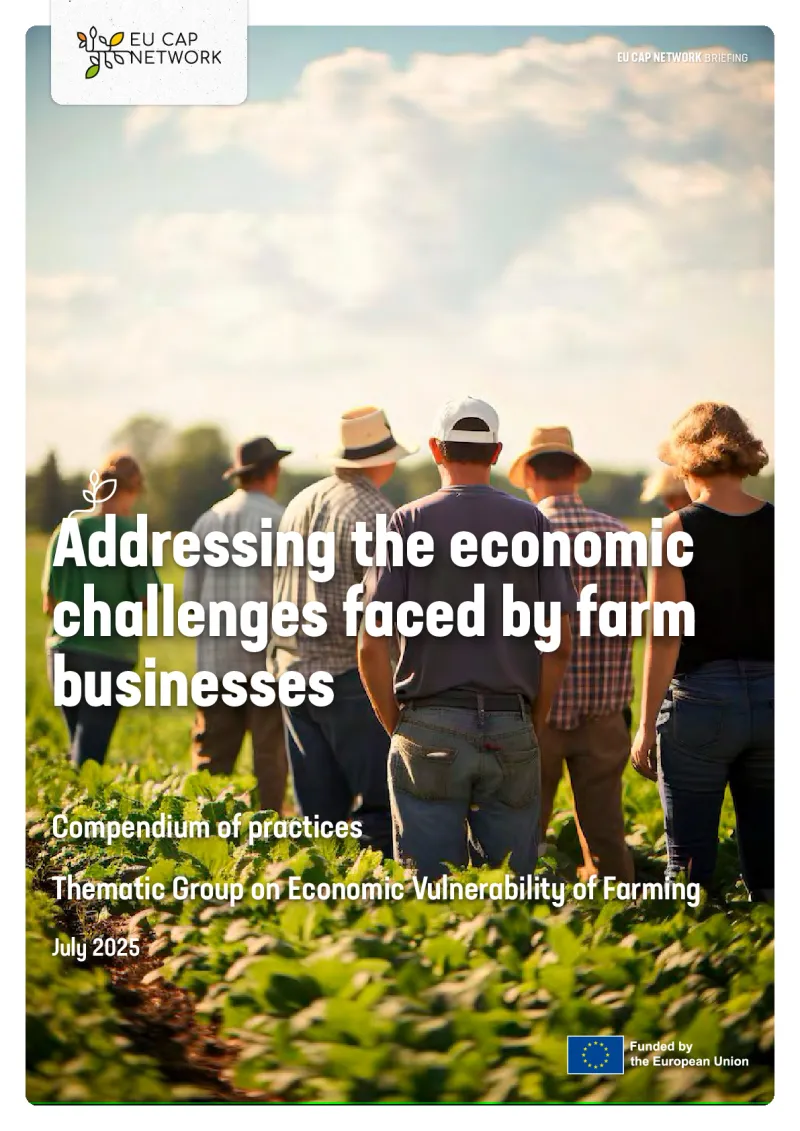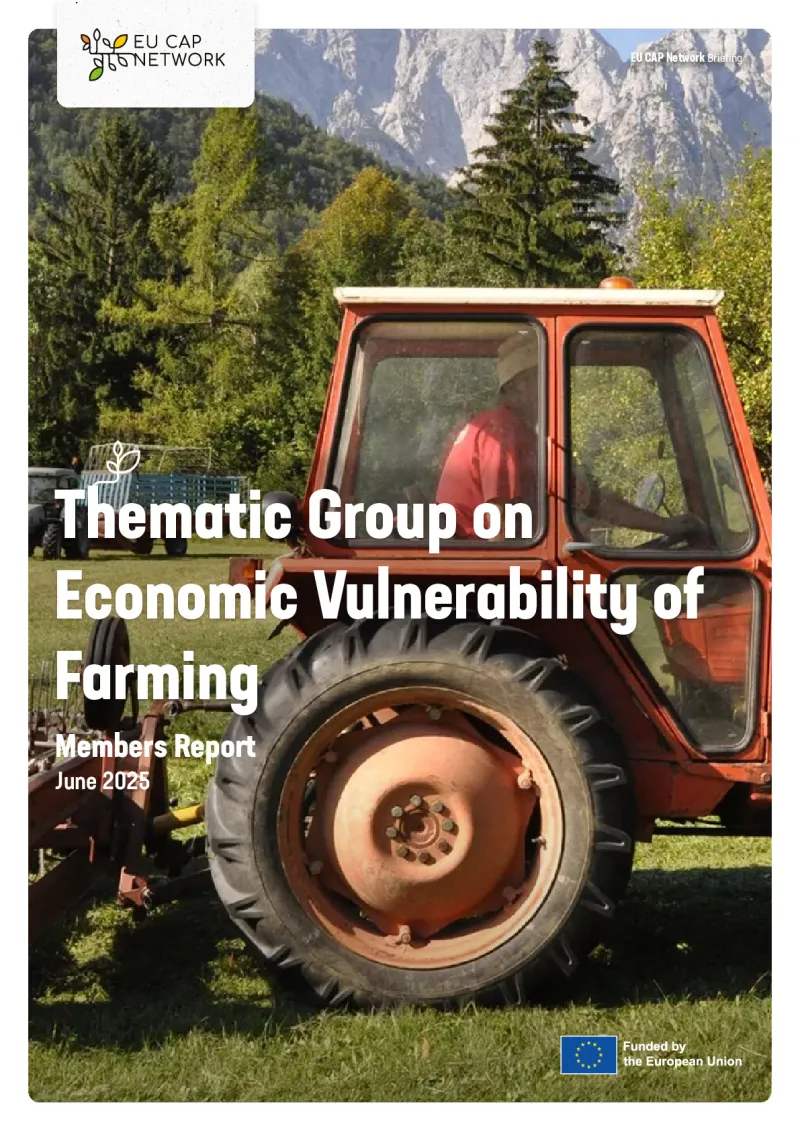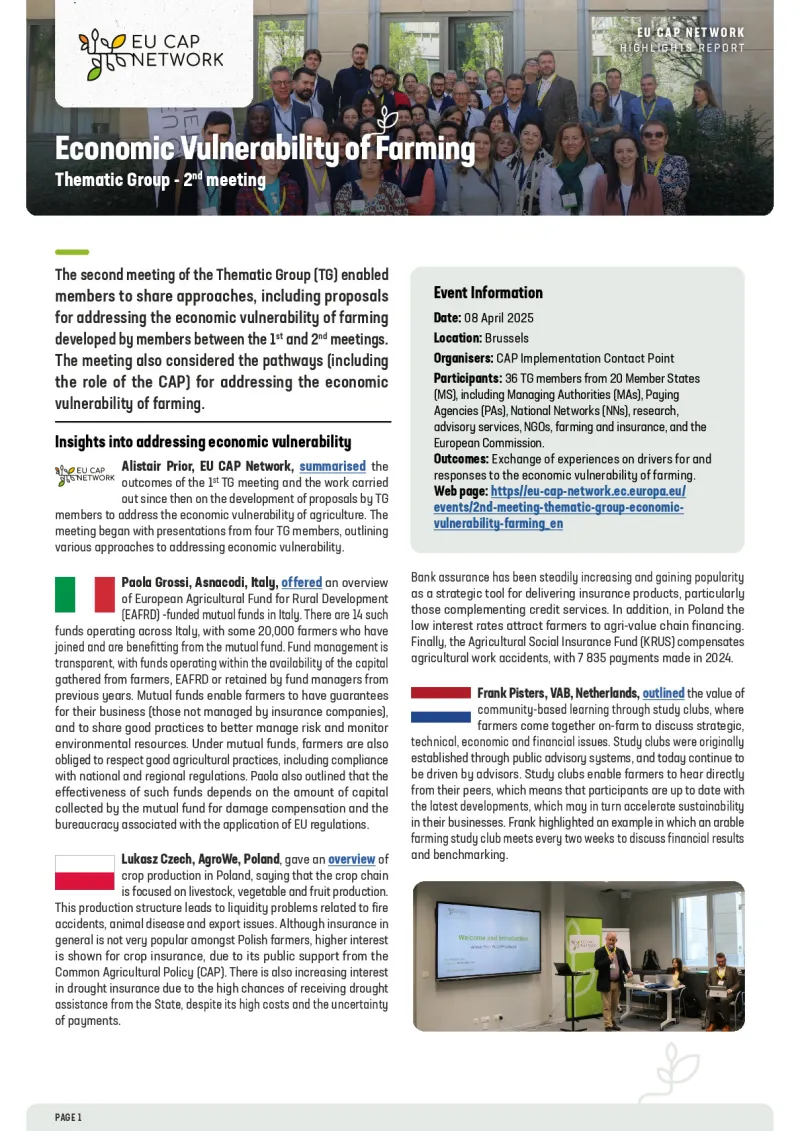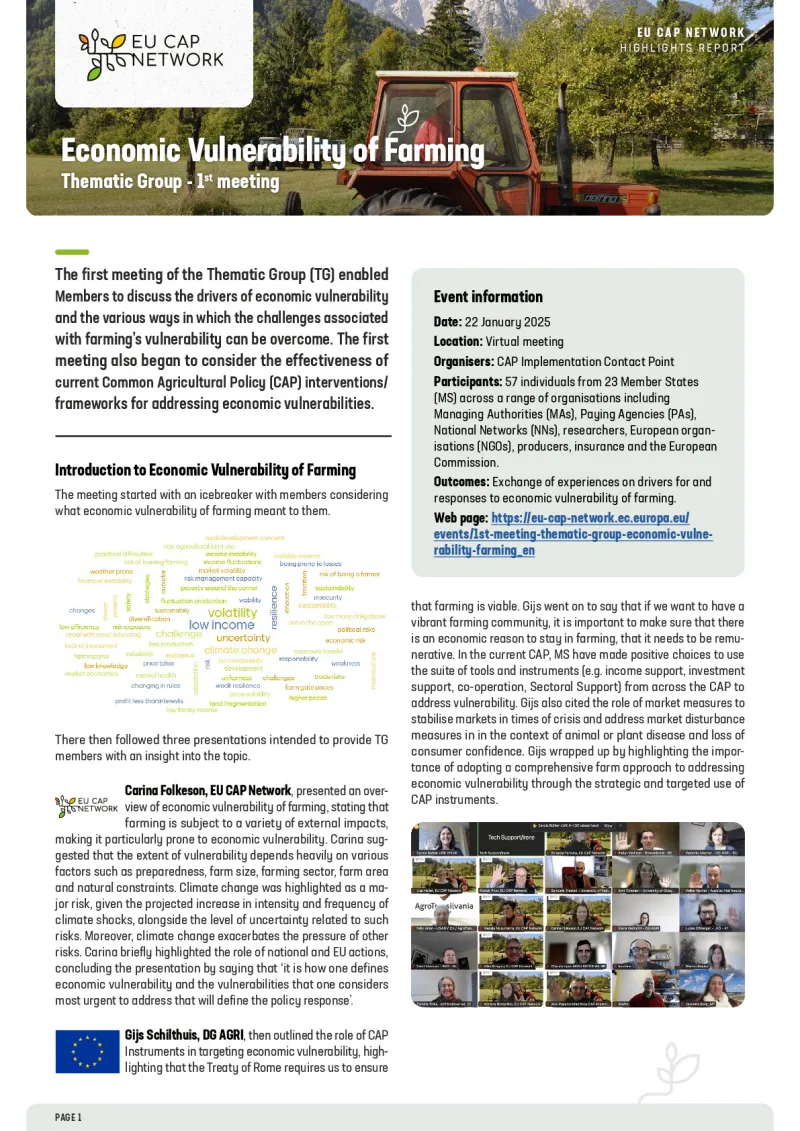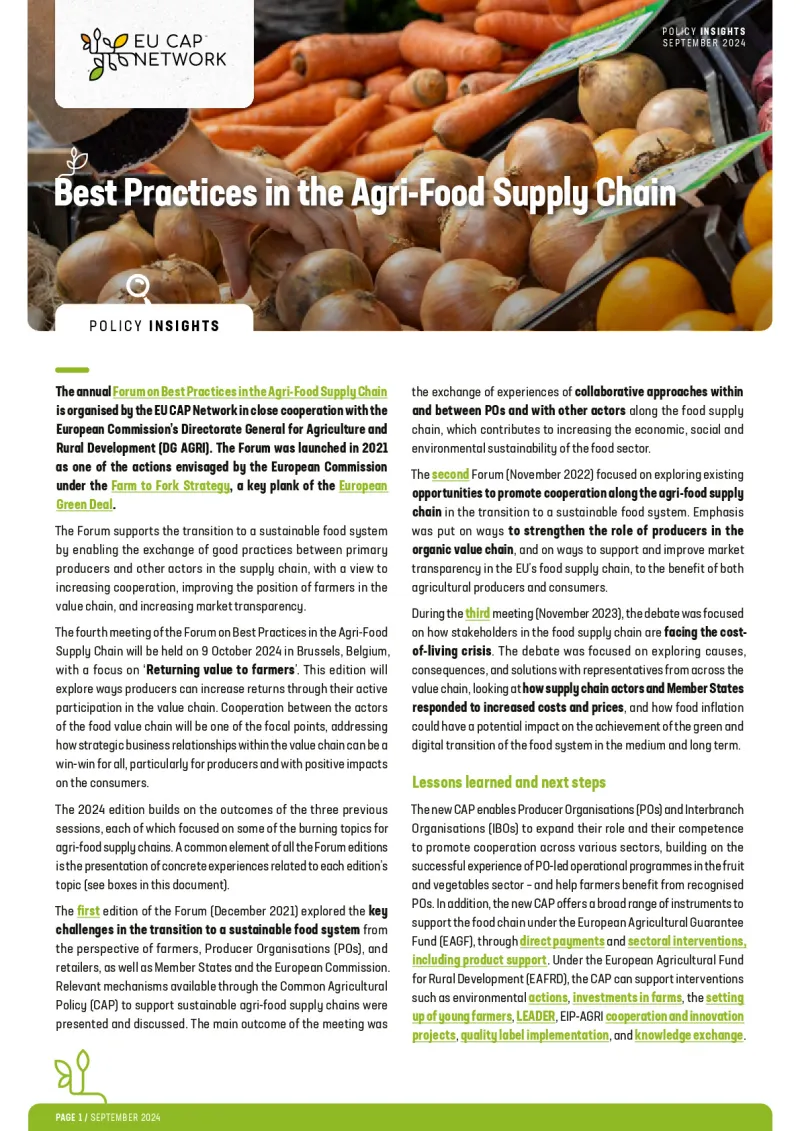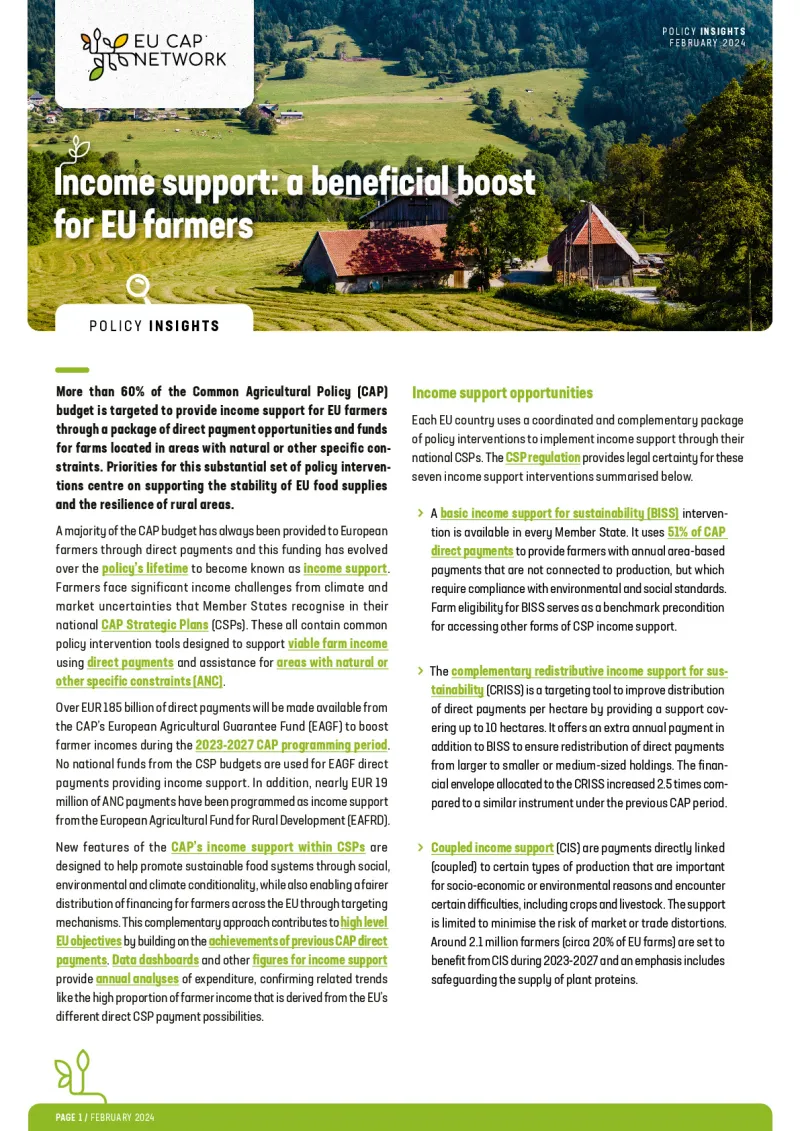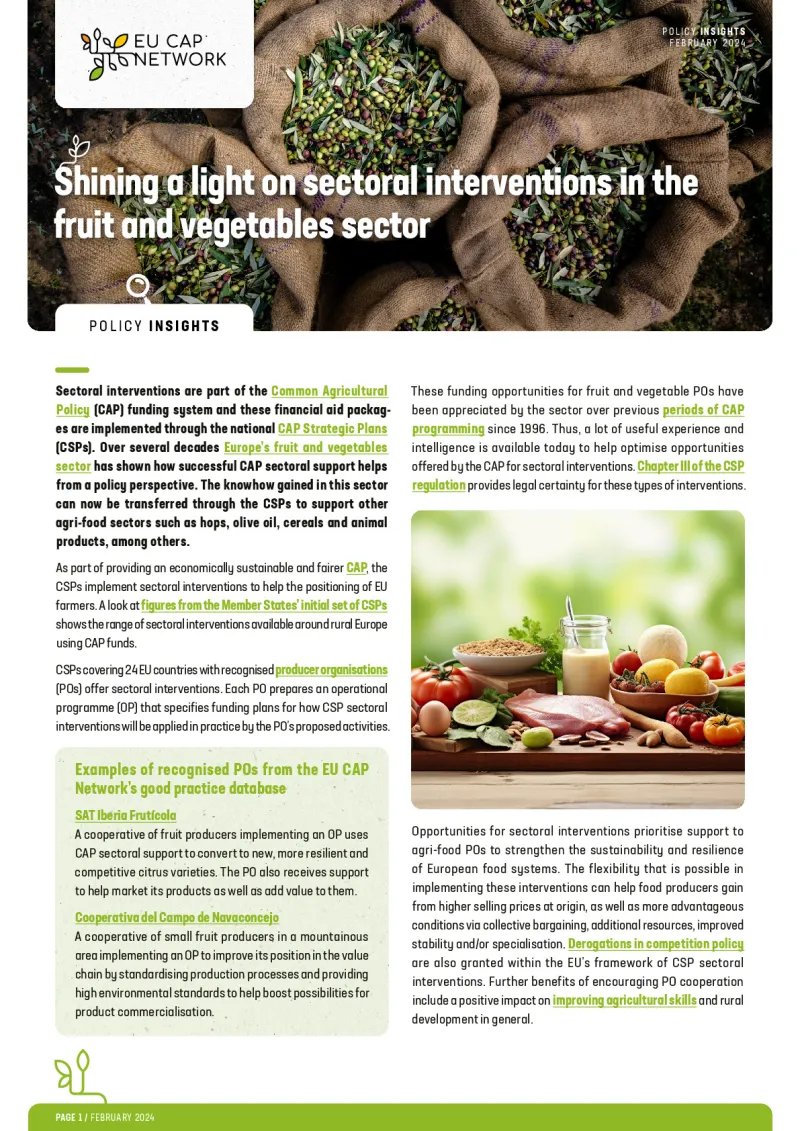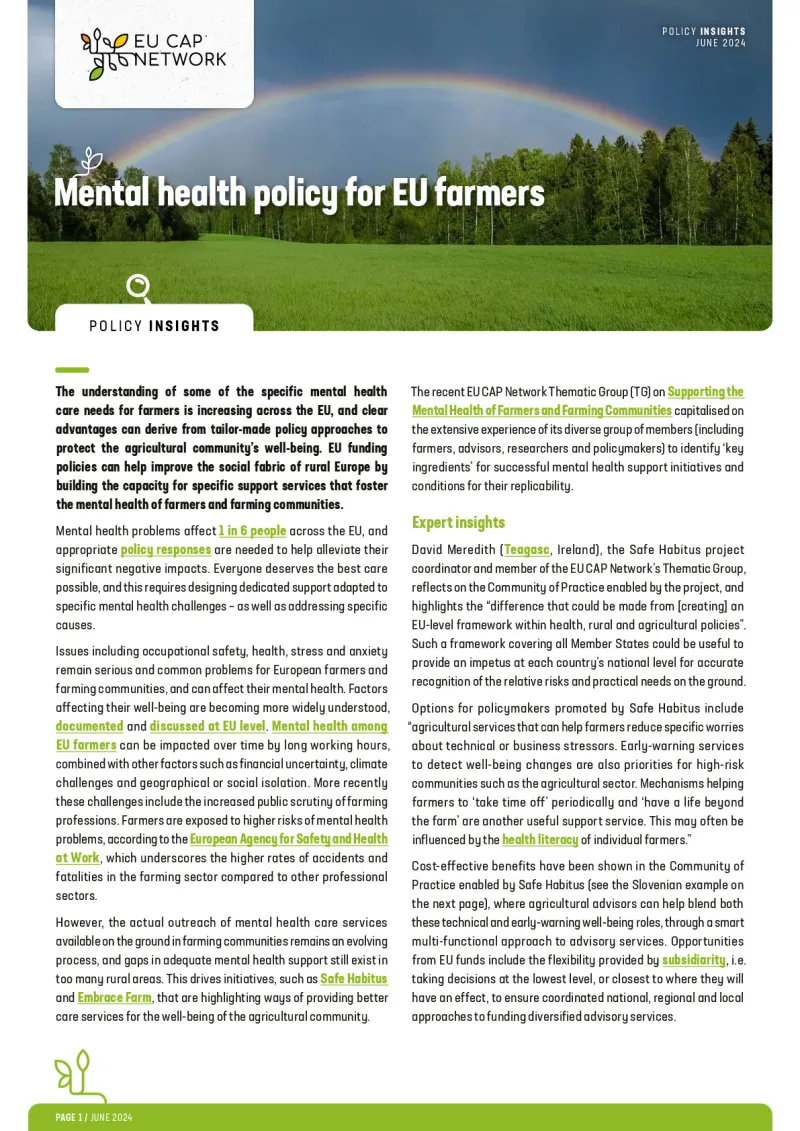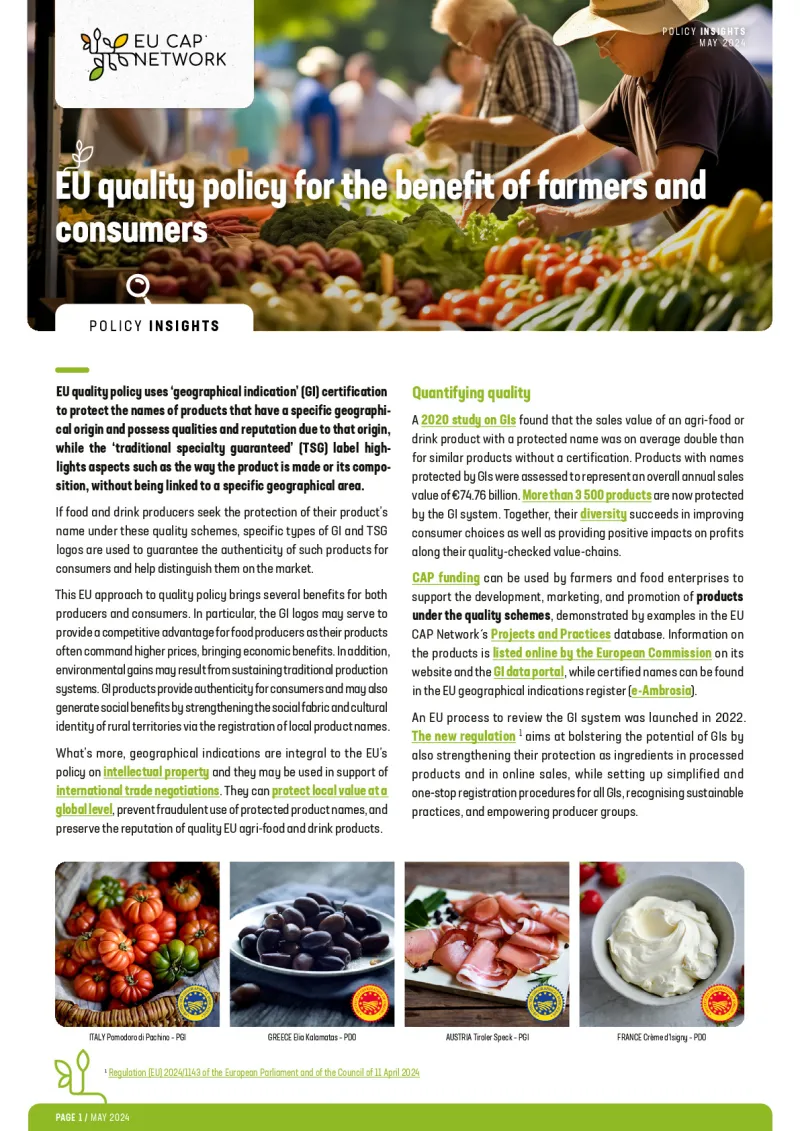Thematic Group on Economic Vulnerability of Farming
This Thematic Group shared analysis, insights, experiences, and innovative ideas on the drivers of economic vulnerability, how challenges are being addressed, and how policy mechanisms under the CAP are used for addressing economic vulnerabilities in farming.

Context & main goal
Economic vulnerability remains a key concern for many farming sectors across the EU, particularly for small-scale farms and those in disadvantaged or remote areas. Despite the range of tools and support offered through the Common Agricultural Policy (CAP), such as direct payments, rural development measures, and risk management instruments, many farmers continue to face persistent economic challenges linked to price volatility, input costs, market access, and climate impacts.
This Thematic Group (TG) brought together a committed group of experts and stakeholders from across the EU to explore how CAP interventions can more effectively address economic vulnerability in farming. The group aimed to identify what lessons can be learned from current approaches, and how policies and support mechanisms can be better tailored to improve farm resilience and economic sustainability.
The background document and the list of TG members are available in the Resources section below.
Objectives
The TG’s objectives were to:
- Explore and define the concept of economic vulnerability in farming, including key drivers and risk factors.
- Examine how farm-based businesses are responding to economic challenges and identify successful coping strategies.
- Assess the effectiveness of current CAP interventions and frameworks in mitigating economic vulnerability.
- Share and develop practical approaches and tools to support economically vulnerable farms.
- Identify potential pathways and policy directions, particularly within the CAP, for enhancing the resilience and long-term sustainability of farm businesses across diverse contexts.
Activities
The first TG meeting (online, 22 January 2025) focused on defining economic vulnerability in farming, identifying its drivers, and discussing how farm businesses are navigating these challenges. Participants also began evaluating the effectiveness of current CAP interventions. In the second TG meeting (Brussels, 08 April 2025) proposals for addressing economic vulnerability in farming were developed. Discussions also considered potential pathways, including the role of the CAP, to enhance farm resilience and sustainability.
In addition, informal discussions supported the development of proposals focusing respectively on preparedness and preventative actions; insurance and mutual funds; cooperation; the supporting environment.
The outcomes of the TG meetings are highlighted in the event reports available below.
Key findings
TG members co-created proposals to address economic vulnerability in farming and produced a members report summarising in detail issues identified, how challenges can be overcome by farm businesses and how the CAP currently addresses, or could better address, economic vulnerabilities. The main proposals (full versions are included in the report) include:
- diversify to thrive: strengthening farm resilience and income through tailored support;
- reducing farm income vulnerability by enhancing participation in risk management tools through lower transaction costs;
- Erasmus-style approach for education: sharing good practices and business solutions; and
- targeted strategies to address financial, digital and bureaucratic barriers through the creation of a dialogue forum.
To find out more about what these proposals cover, take a look at the members report (in the Resource section below). Other ideas brainstormed include:
- Preparedness and preventative actions (e.g. supporting investments for risk management tools, adapting relevant legislation to include tailored opportunities for vulnerable farms, advice on the use and application of risk management tools by farm businesses, and support to all forms of cooperation between producers);
- Insurance & mutual funds (e.g. Income Stabilisation Tools (IST), initiatives to drive innovation in the insurance sector, and the use of artificial intelligence (AI) in the insurance process).
- Cooperation (e.g. access to price risk management tools e.g. hedging, small contributions to access new technology, information and training, Horizon projects for cooperative members / staff, and voluntary mutual associations).
- Supporting environment (e.g. promoting and increasing peer-to-peer advisory concepts, education and workforce development, diversification and market expansion, digitalisation and smart farming).
Strategic priorities/pathways where the CAP could strengthen its focus in the future were identified. Listed in order of priority, the group highlighted a number of key areas for action:
- Focus on prevention and resilience
- Attractiveness for young farmers and new entrants
- Focus payments on active farmers
- Better targeting of payments
- Pool Risk Management for weather events at EU level and risk diversification
- Link investment support to insurance schemes
- Value Chain
- Improving entrepreneurship and role of AKIS to support this
- Systemic risk in market
- Target incentives – collaborations
- Focus on labour conditions
The TG also developed a compendium showcasing inspiring examples that address the economic vulnerability of farm businesses across the EU. These examples, provided by TG members from a wide range of sectors, highlight the importance of coordinated action involving National Authorities, insurance providers, farming organisations, and individual farmers. The initiatives included are supported through various mechanisms and include direct economic support and risk mitigation strategies as well as innovative approaches to enhance resilience.
Scroll down this page to find all the outputs of this Thematic Group and relevant resources related to this topic.
Learn more
You can find other useful resources about this theme in our Publications section and in our Good Practice database.
If you have any questions or suggestions, please contact us at implementation@eucapnetwork.eu.
If you want to be informed when new content is available on this or related topics, subscribe to the EU CAP Network newsletter.

